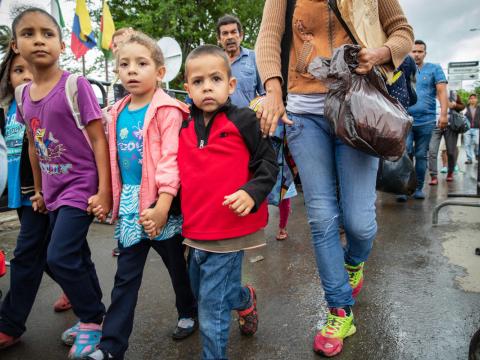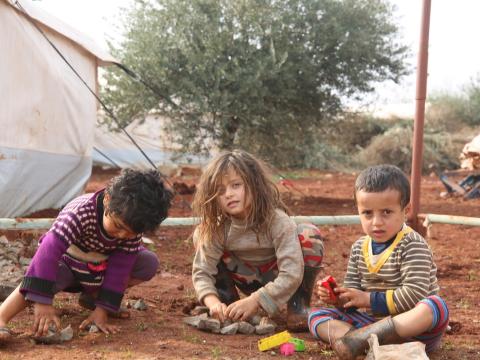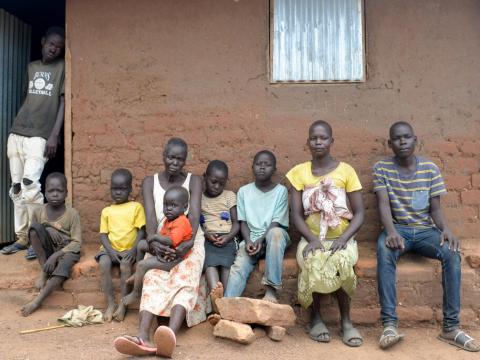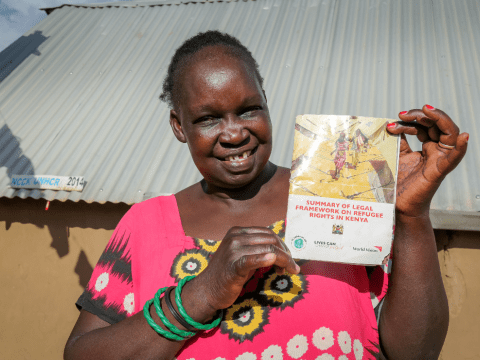
Refugees are high risk, low priority and ignored
Besi shares how teaching displaced people their rights and helping them speak up could improve services and save lives in the COVID-19 pandemic.
COVID-19 continues to exploit and deepen inequalities, disproportionately putting more lives in jeopardy in the world’s toughest places. Sadly, forcibly displaced children, women and men, face some of the highest risks but remain the lowest priority in national and global responses to the pandemic.
If you want proof of that, take a look at World Vision's new report based on new survey of 339 refugee and internally displaced peoples (IDPs) households (representing 1,914 people) in Brazil, Colombia, the DRC, Jordan, Peru, Turkey, Uganda, and Venezuela. It was clear from the results that refugee communities continue to be left behind with critical services, including child protection and Covid-19 vaccination services being denied them.
How bad is it for these people? Only one person out of the 1,914 refugees and IDPs represented in the 339 household interviews for World Vision’s research reported receiving a COVID-19 vaccine.
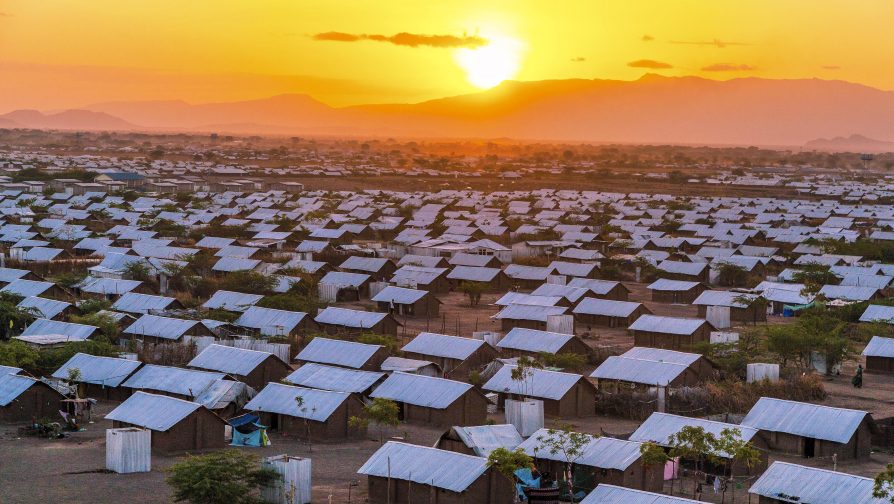
This statistic hit me hard. How is it that at a time when equity and inclusion are global agendas, refugees are the last to be reached? If they are reached at all. Surely there is an accountability question at the centre of this – both global and local?
World Vision’s experience in Kenya is that when refugees, as holders of rights with entitlements, are put at the heart of the accountability dialogue through social accountability, local services can begin to improve.
Since 2005, World Vision has been using a social accountability approach called Citizen Voice and Action (CVA). Initially it focused on the social contract between governments and their citizens, but we realised that the approach could be flexible. We took a stab at replacing ‘citizen’ with ‘community’ and adapting its application for migrants in Thailand and refugees in Kakuma in Kenya. It worked!
Here are three reasons why I believe social accountability can help refugee families, through non-confrontational dialogue and promoting collective action approaches, realise their entitlements.
Social accountability facilitates a refugee’s right to information.
World Vision’s new report reveals that refugees often lack information on what services are due to them.
For instance, 68% of respondents to the interviews for World Vision’s research had not even heard of plans for vaccinations in their communities. Nearly half (47%) thought they were not eligible or did not know if they were eligible for a vaccination.
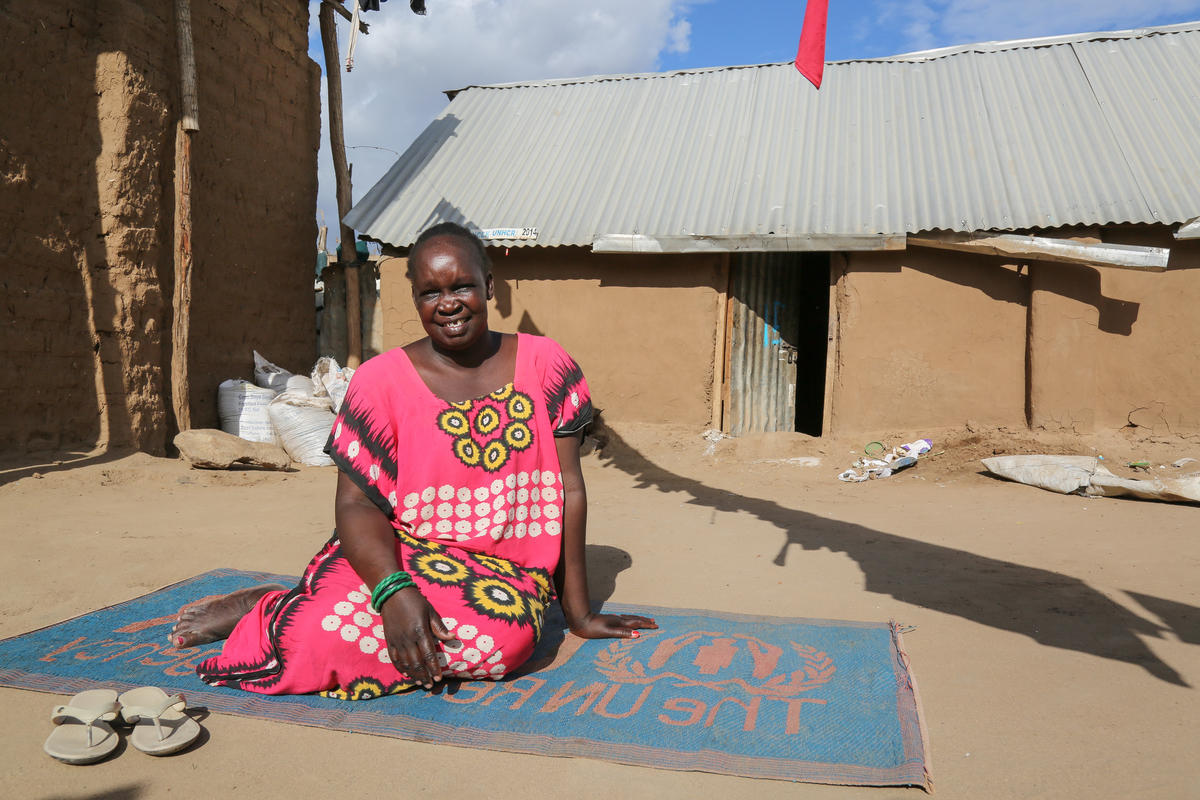
The experience of Elizabeth, a refugee from South Sudan living in Kakuma highlighted that there was a lack of information for refugees. Teaching people about their rights, entitlements and responsibilities is the starting point of the CVA social accountability approach. Elizabeth had been a refugee for 20 years and it was only in 2017, together with other refugees living at Kakuma Refugee camp, that she received training from World Vision Kenya on refugee rights and entitlements, and on how to engage and improve the relationship between the refugee community and service providers. Unlike the majority of social accountability that focuses on government services, in refugee camps, services are provided by a variety of actors, including international organisations, Non-Governmental Organisations and the government, providing the refugee with services like health care, food security and education.
Many refugees are unfamiliar with their rights and keep quiet when faced with an issue of concern affecting their lives in the refugee camp. Elizabeth has taught more than 500 people in her refugee community (many of them from different nationalities) about their rights.
In the case of the COVID-19 vaccine, limited access to reliable and adequate information promotes vaccine hesitancy.
Social accountability enables refugee voices and provokes collective problem-solving.
Knowing your rights is one thing, but being able to do something about it when your rights are being denied is another. Before the Community Voice and Action approach was introduced in the camp, the refugees did not have a platform where they could raise their grievances and suggest ideas to improve the services. This resulted in disagreements between the community and the services providers.
CVA equips communities with tools such as community score cards and mini social audits, and facilitates participatory meetings for communities to monitor service delivery and identify gaps. The results are shared in interface meetings with state and non-state service providers to develop local action plans to improve quality and meet standards for services such as drug stocks, nurses per head of population, vaccines, student-teacher ratios, food distribution standards and child protection services.
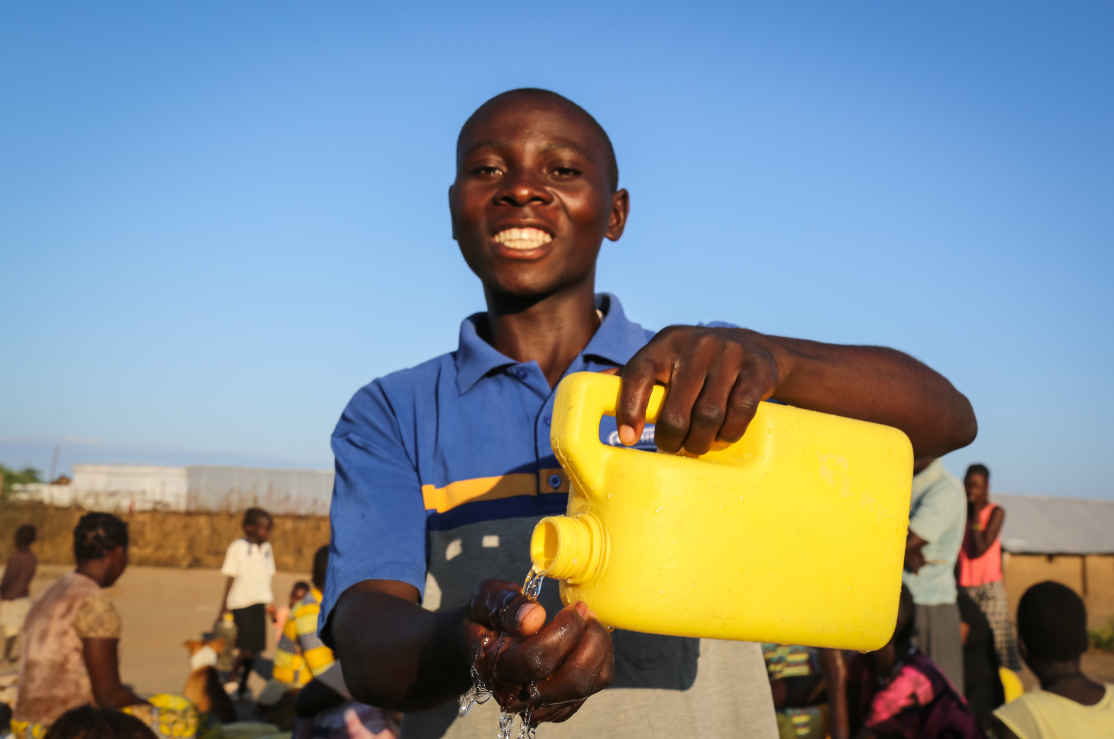
Mulangaliro a pastor at the Kakuma Refugee Camp, felt he had a role to play. CVA equipped him to not only work with the community to identify problems, but work with duty bearers to collectively find solutions to the problems affecting the refugee community.
Amina is a refugee and mother of four and a Community Voice in Action working group member in the camp. Since 2014, Amina has been guarding and managing the gate at the entrance to the food distribution point in the camp. Amina has built respect and relationships with the community. When it comes time for food distributions, instead of fighting with her and each other, the refugee camp community listen and follow her instructions.
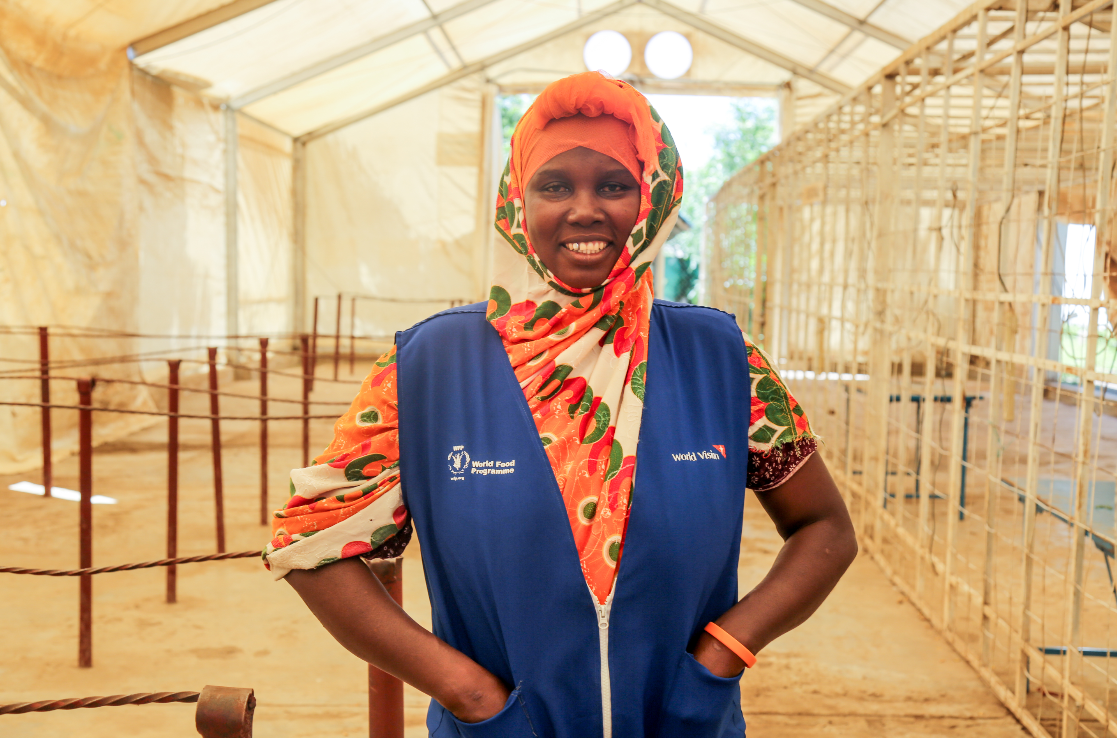
Social Accountability Improves services and strengthens relationships
From the social accountability work supported by World Vision Kenya and facilitated by Elizabeth, Mulangaliro, Amina and other community leaders together with their communities in the camp, services are improving, including improved water supply, food distribution and the construction of a new school. A significant result is that relationships have also improved between the camp community, local government and services providers. This is in line with the findings in an evaluation by Columbia University on a research conducted in Zambia, that showed the CVA approach positively impacted the state, society, state-society relations and development coordination at the local level.
For many, a lifesaving service today is the COVID-19 vaccination. Evidence from World Vision’s use of its CVA approach in places like Indonesia, Pakistan and Uganda has shown that the approach can improve vaccination services and lead to increased immunisations. Given the service-improving success of the approach to date, a number of World Vision offices have begun adapting the approach to facilitate community monitoring of the COVID-19 vaccination services. From the experiences above, social accountability should be seriously considered as part of National Vaccine Deployment Plans to improve vaccination service and user satisfaction and to promote uptake. If stakeholders are serious about Leaving No One Behind, refugee communities, who are often the highest risk, should be listened to and given the highest priority.
To learn more about World Vision’s social accountability work visit here
To read more about Citizen Voice and Action visit here
Besinati Mpepo is World Vision’s Technical Director, Social Accountability. Follow her on Twitter at @Besinati .
